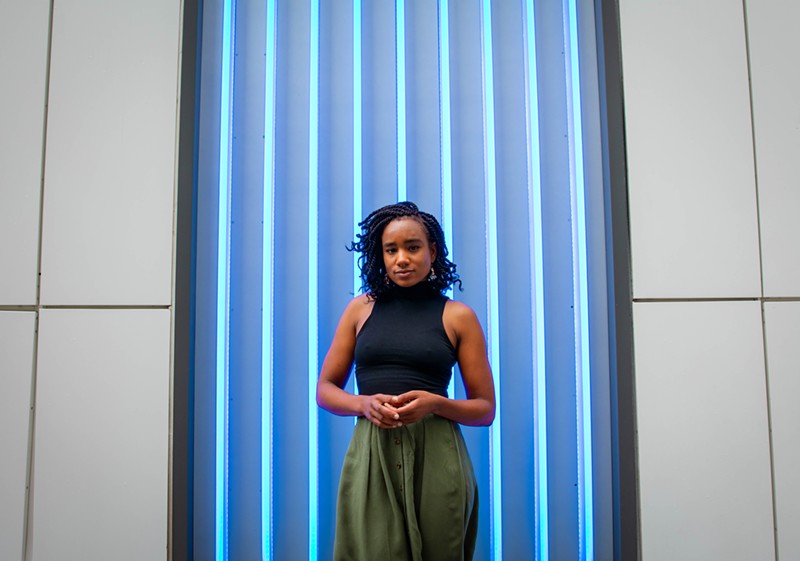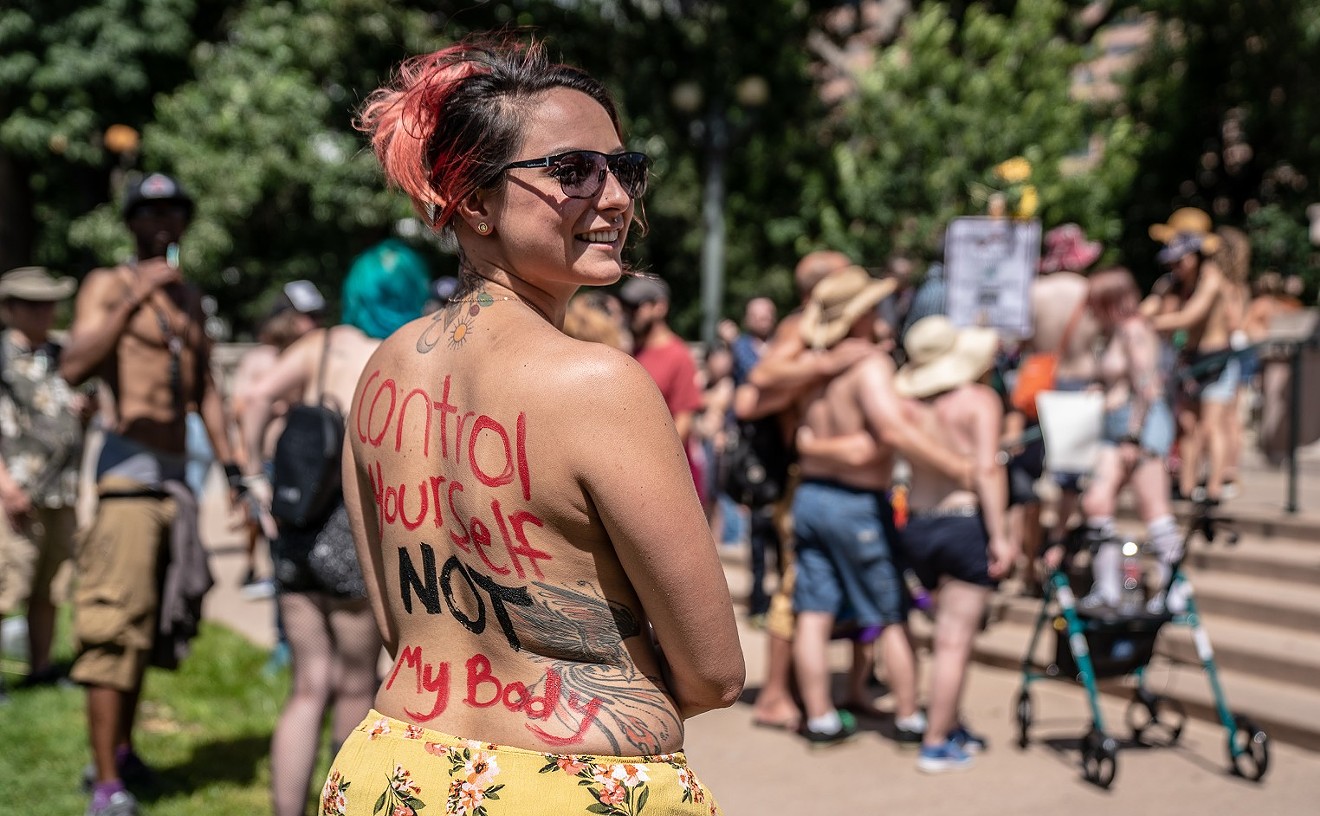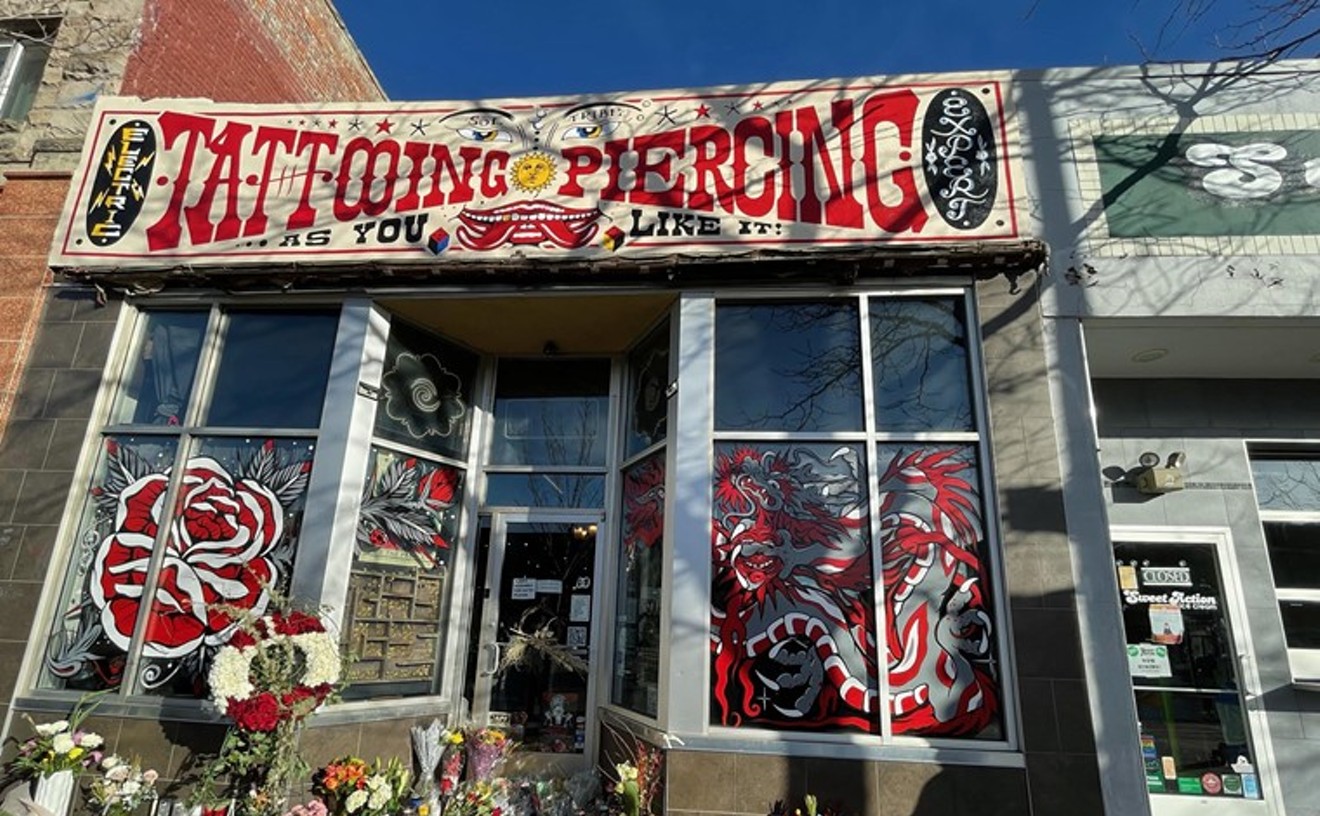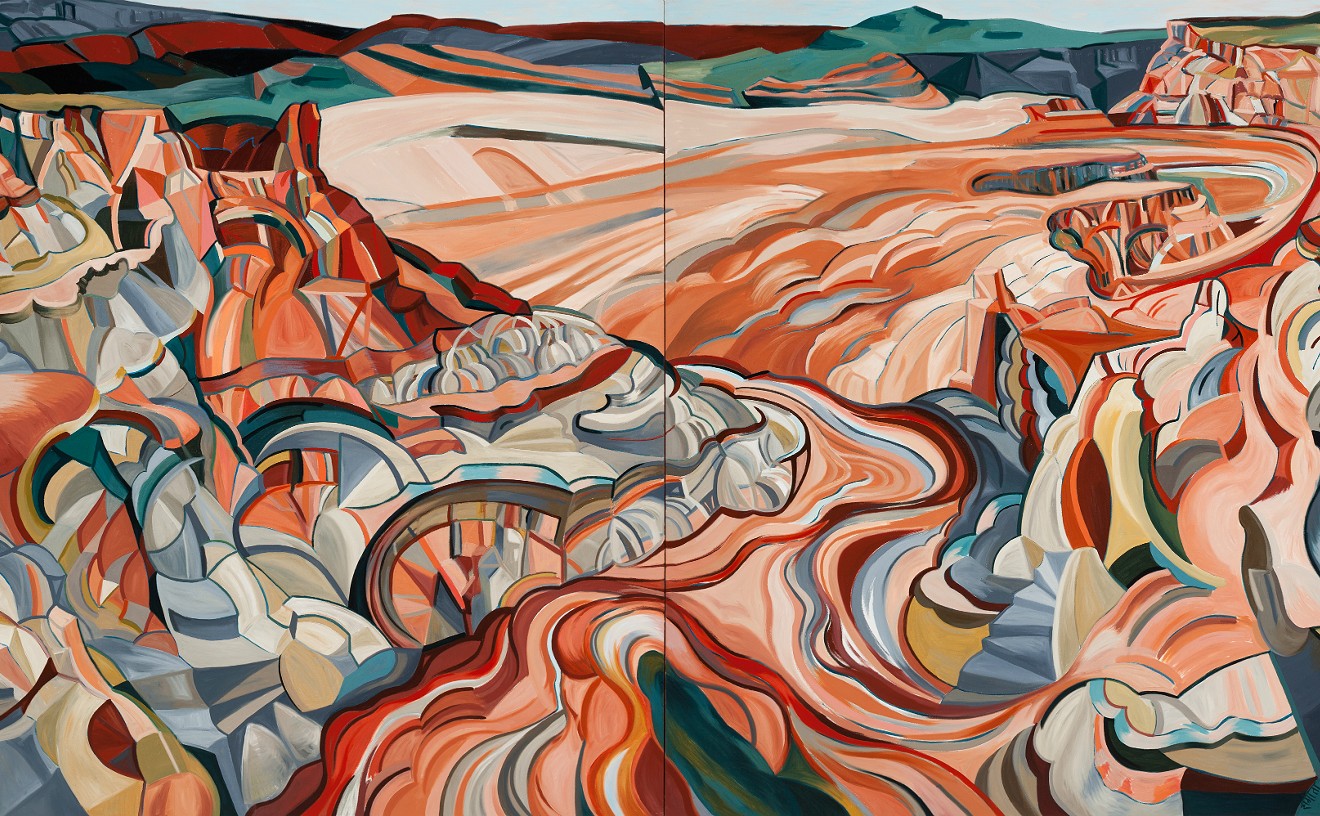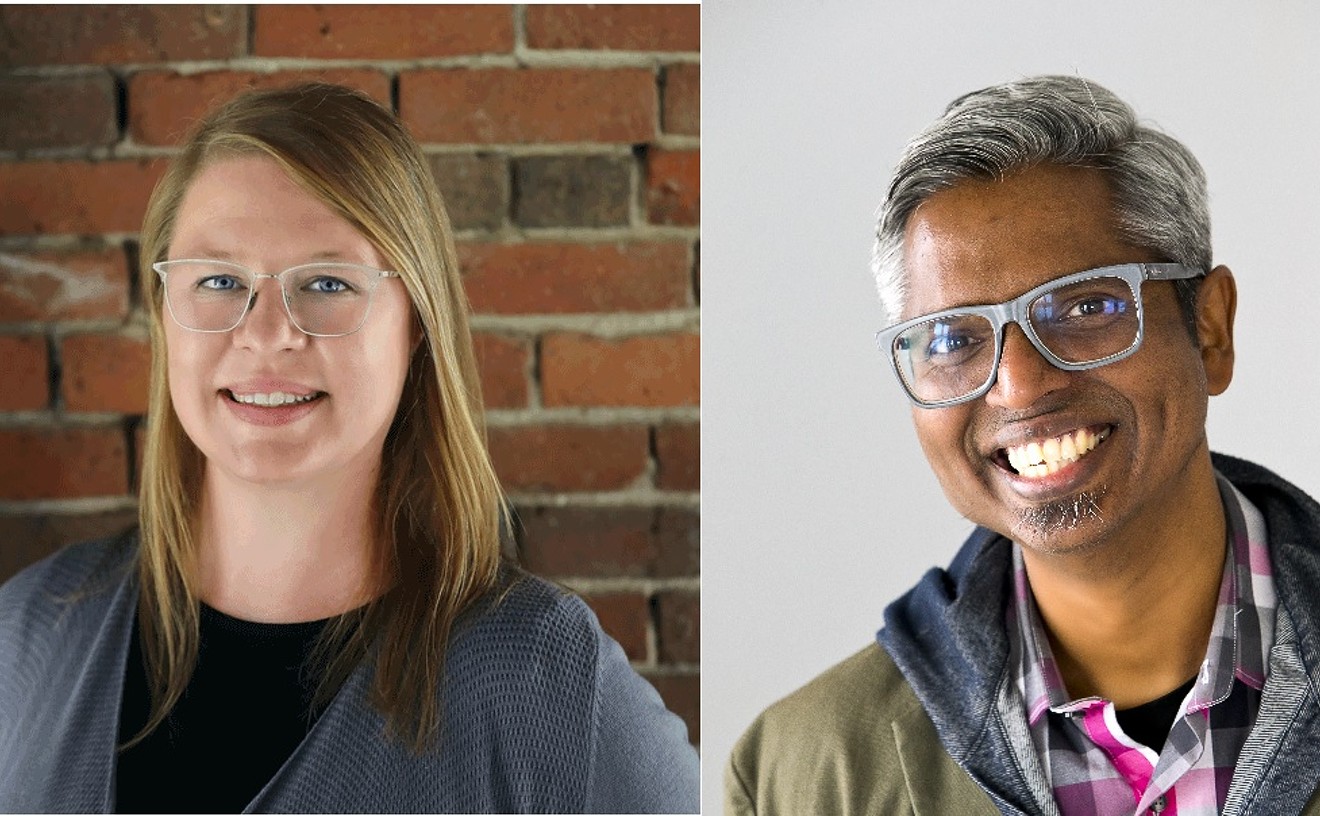These are just a few of the questions that Nashville-raised, Denver-based photographer Narkita Gold asks her subjects for her Black in Denver project, which will be on display at the Boulder Museum of Contemporary Art from February 11 through May 31 as part of From This Day Forward.
The exhibition was curated by interdisciplinary artist Tya Anthony and includes works by Paula Gasparini-Santos, Rochelle Johnson, Kim Putnam, Ellamaria Ray, Kenzie Sitterud, Santo Sunra and Autumn T. Thomas. Gold's work will also be at the Museum of Contemporary Art Denver from February 26 through August 22, the Colorado Photographic Art Center from February 19 through April 17, and PlatteForum from March 11 through March 25.
Anthony says the title of the Boulder show, From This Day Forward, reflects on the state of the world during COVID-19 and ongoing political and civil unrest over the police killings of George Floyd, Breonna Taylor, Elijah McClain and other Black people.
“We decided that as artists, educators and designers, in order to move forward, we must address what was upon us as a community,” Anthony explains. “We would address grief and loss along with difficult conversations of what the world and society has been and could be, and maybe, just possibly, how to find a path to get there.”
Gold’s Black in Denver series includes portraits of various African-American people against colorful backdrops, and their answers to her questions about their identity.
“What I want the viewer to see is the spectrum,” Gold says. “Ideas I explore are mass media and the concept of the self and how it has defined Blackness; mass media and how it molds public perception of Black people; Black people’s vastness, especially around self-expression. We are not a monolith. Our experiences vary.”
Subjects of the sixty-plus portraits include teachers, engineers, bus drivers, podcasters and even Denver Mayor Michael Hancock. While exploring their lives, Gold learned more about her own identity.
“I started Black in Denver because I was having an identity crisis here,” Gold conveys. “I think I’ve always tried to fit a mold. For most of my life, I’ve existed in white spaces. I definitely tried to fit into that world and ended up assimilating.”
Gold grew up in Nashville, in a world with churches on every corner, country music blaring everywhere she went, no shortage of Confederate battle flags, monuments that praised the Ku Klux Klan, and a street named Robert E. Lee Drive.
“I didn’t quite fit that way of living,” she says. “I’ve always had an urge to leave. I wasn’t white, but tried to fit the idea of whiteness because that’s who I was around. When I was around my Black peers, it was rough, because according to them, I ‘acted and talked white.’ So I often felt lonely.
“Here [in Denver], I am really proud to be Black, and I am grateful for the experience,” she adds. “I can just exist, and I have never experienced such a thing. For the first time in my life, I started to examine what makes me me. So I decided to ask people about their experience here, and surprisingly, a theme arises.
“I love the words people share,” Gold continues. “They articulate the experience in such a profound and beautiful way. It’s moving and inspiring. I also love the people I’ve met.”
As a curator, Anthony found herself inspired by Gold’s use of documentary photography as a vehicle to share the various perspectives and stories of each participant.
“Narkita’s work provides an ever-evolving extension of the Black experience,” Anthony explains. “It is my intention as the curator to express the positive impact of sharing the diverse experiences and perspectives of individuals involved in the Black in Denver series, shining a light on the importance and culture of oral traditions, and creating space for the authenticity of a community through their own voice.
“Understanding that no one culture is a monolith is dire in further exploring the opportunities of connecting society instead of tearing it apart,” she adds. “This group show is an invitation for our community to reflect on the current challenges of our society and contemplate how we can build a better future for all humanity.”
Several of Gold’s artistic influences include Jean-Michel Basquiat, Shaniqwa Jarvis, Salvador Dalí, Keith Haring, Kehinde Wiley and Ryan McGinley, whose photos directly inspired Black in Denver.
“I saw Ryan McGinley’s work at the Denver Museum of Contemporary Art a few years ago,” she says. “I was inspired by the Polaroid series of his friends; it was a source of inspiration for my series. I also loved that he wasn’t afraid to show his early work. It makes me appreciate my progression as an artist, the imperfection in my work, how far I’ve come and how far I may go."
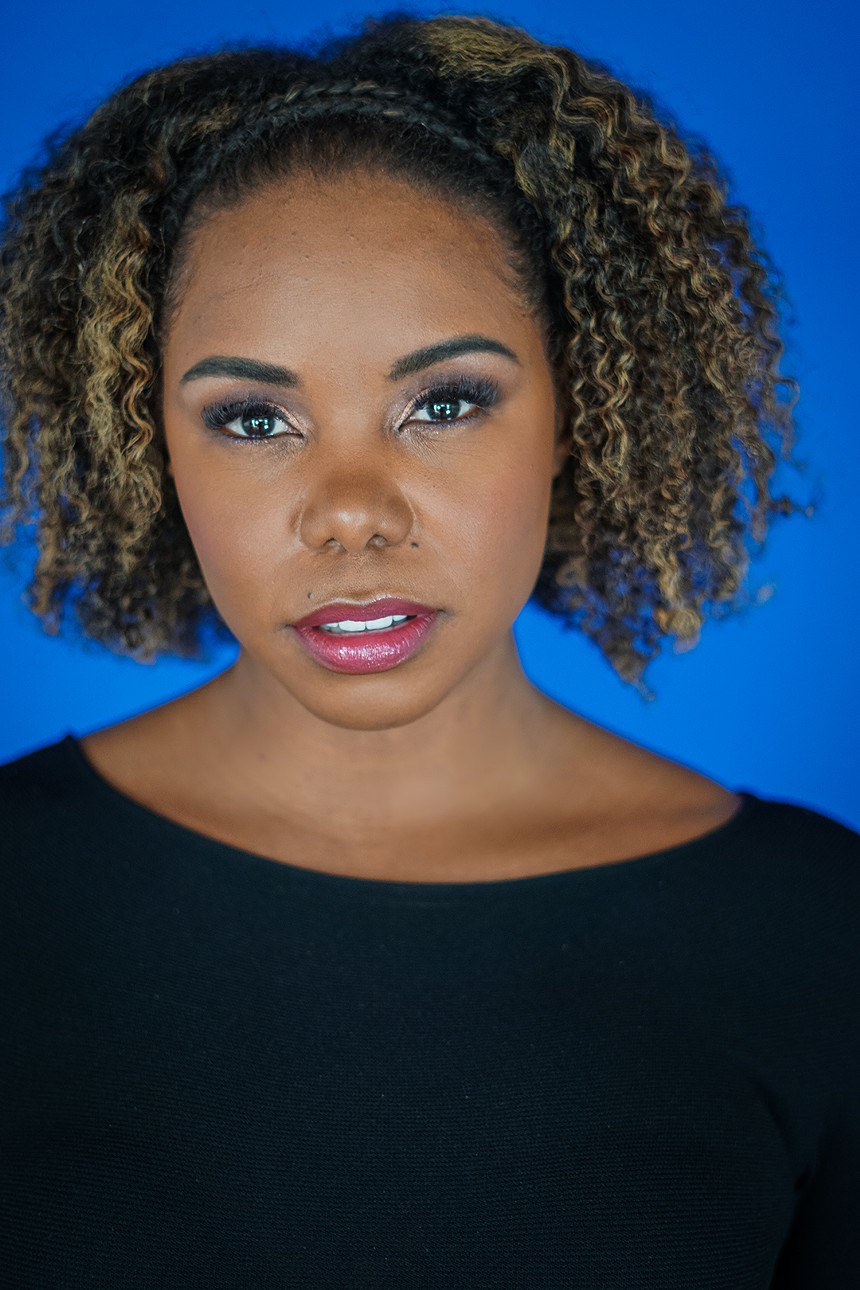
Erica Cobb is a co-host on Daily Blast Live, a nationally syndicated talk show produced out of the Mile High City.
Narkita Gold
“I’ve been dancing since I could stand,” she says. “Dancing and photography are my first loves. My dad gave me a film camera, which I destroyed, and his Polaroid from Japan when I was little. I drew and wrote poetry as a child. I don’t know if there was ever a decision to get involved; it was just there.
“At one point, I struggled with what to do in life,” she recalls. “But now, photography and art-making have become my favorite. Today, I dance for the love of it. It makes my soul happy.”
Gold was trying to make sense of her identity and the labels that were given to her: a Black woman, a free spirit, a thinker and an awkward nerd.
“Well, Black was created, so I guess you can say society gave it to me,” she conveys. “After a lot of work and healing, I wear it with pride. A woman is my most salient identity. I was labeled as gifted early on, and even though I’m just getting used to the label, I rarely use it.
“I’ve been labeled a creative genius,” she continues. “I’ve heard that a few times. I’m not a genius. I’ve also been called a visionary. All these are hilarious to me, mainly because I know myself, and I think I’m far from those things. While I accept these titles, I prefer to go with something a little less intense, which is how I’ve come to [be] a thinker. It’s just an easier label to live in. Awkward nerd comes from my lived experience. I’ve also been a do-my-own-thing kind of person. I just exist. I try not to think about it too much.”
When seeing the photos in Black in Denver, viewers are compelled to make eye contact with the subjects, who are all looking at the camera, as if they are having a one-on-one discussion. Gold says this helps spectators connect with each person's humanity.
“I shoot close up because I want the viewer to meet the gaze of each participant and see our shared humanity,” she explains. "There’s a lot we can discuss, so I'm leaving more room for people to come to their own conclusions.
"I will say that there are little nuggets within each interview, and it’s done intentionally,” Gold adds. “If you pay attention and read the full interviews — all of them — you'll find ways to heal yourself, like yoga, therapy, meditation, nature. Plant medicine and psilocybin will be in there at some point, too.”
By sharing the stories of everyday people within her community, Gold hopes the project helps heal Denver's Black community from individual and collective traumatic experiences including police brutality, micro-aggressions, slavery and more.
“When I think about our situation, I don’t feel racism can be eradicated,” Gold concludes. “I often think about how Black people can heal themselves and thrive despite what’s against us — that’s what motivates me. My work is not about the who’s who of Denver. It’s about everyday people who are healing themselves. I just want to document the healing happening here and save it for future generations to use.”
See Black in Denver and other works at the opening reception for From This Day Forward, 4 to 8 p.m. Thursday, February 11, at the Boulder Museum of Contemporary Art, 1750 13th Street in Boulder. Viewing capacity is limited and masks are required. Find the virtual programs for the exhibit on the museum’s website.

